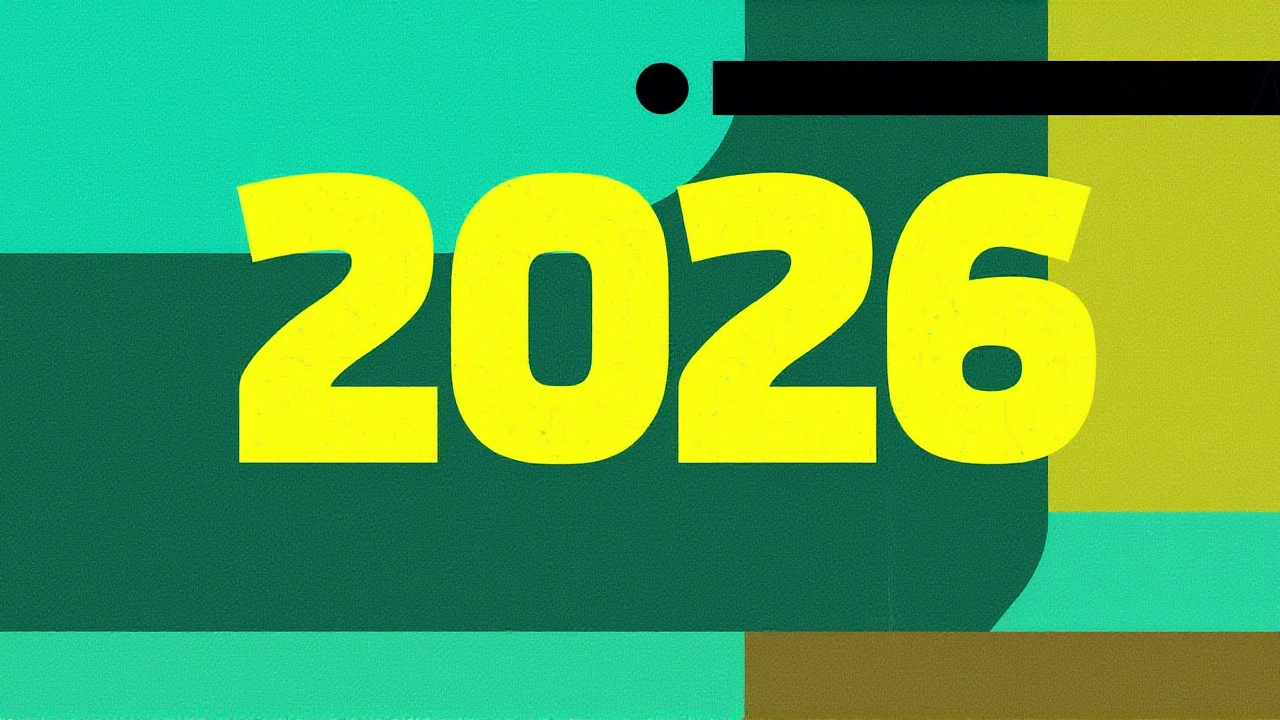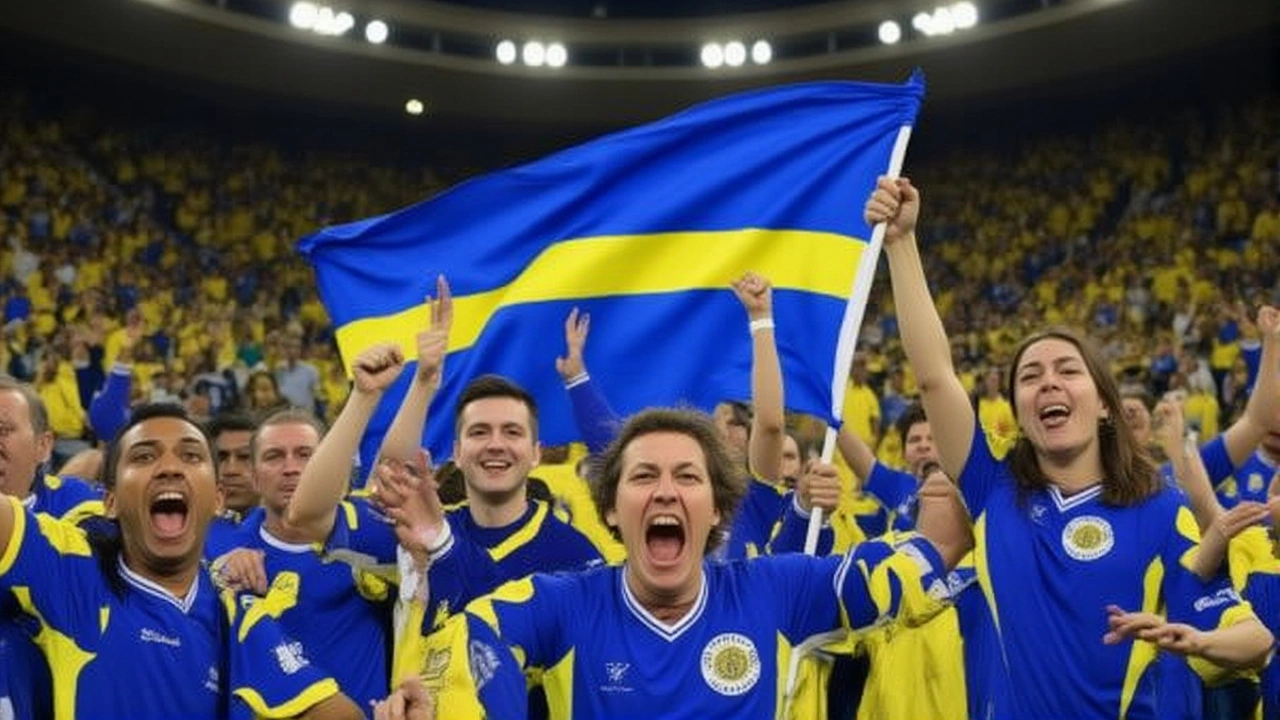Curacao becomes smallest nation ever to qualify for 2026 FIFA World Cup

On Wednesday, November 19, 2025, the tiny island of Curacao did the impossible: it punched its ticket to the 2026 FIFA World CupUnited States, Canada, and Mexico — and in doing so, shattered a 92-year-old record. With a population of just 160,000, this Caribbean nation became the smallest country ever to qualify for a World Cup finals, defeating Jamaica in a nail-biting qualifier that sent fans into euphoria. No one saw it coming. Not even the players.
The Moment That Changed Everything
It happened on a Wednesday night, though no one knows exactly where or when the match kicked off. The score? Still unconfirmed. But the outcome? Unmistakable. A single victory — one that didn’t make headlines in most global newspapers — became the defining moment in Curacao’s sporting history. Footage from AFP News Agency, broadcast at 00:01:07 UTC, captured raw emotion: players collapsing to their knees, tears mixing with sweat, and one unnamed player, at the 17-second mark, saying, "We’re super proud. You guys did great. I didn’t expect this because I thought Jamaica was a strong team, but we did it. Finally, we did it." At 35 seconds, the same voice rose again: "We will show everyone that we are small, but we are big at heart. We’re going to show them that we are big at heart." The clip ended with applause, music, and a quiet "Thank you." No grand speeches. No corporate sponsors in the background. Just pure, unfiltered pride.
A Nation Built on Heart, Not Size
Curacao isn’t just small — it’s microscopic on the global football map. Its national team didn’t even exist as an independent entity until 2011, after the dissolution of the Netherlands Antilles. Before that, players from the island wore Dutch jerseys or nothing at all. Now, they’re heading to the World Cup.
Compare that to the usual qualifiers: Brazil, Germany, Argentina — nations with stadiums holding 80,000 people and youth academies stretching across continents. Curacao has one professional stadium, Stadion Dr. Antoine Maduro, with a capacity of 5,500. Its football federation operates on a budget that wouldn’t cover a single Premier League player’s weekly wage. Yet here they are.
"It’s not about money," said a longtime Curacao coach, speaking off-camera to a local radio station. "It’s about kids playing barefoot on asphalt, dreaming of one day representing their island. That’s where our talent comes from. Not from academies. From hunger."

More Than a First — A New Era
This isn’t just a feel-good story. It’s a sign of football’s shifting landscape. The 2026 FIFA World Cup is the first to feature 48 teams, up from 32. And FIFA’s expansion isn’t just about revenue — it’s about inclusion. Curacao joins a new wave of debutants: Cape Verde, Jordan, and Uzbekistan — all nations that once seemed too far from the spotlight to ever reach this stage.
And that’s the real story. The World Cup isn’t just for the giants anymore. It’s for the underdogs who train on cracked concrete, who play with secondhand boots, who wake up at 5 a.m. because there’s no school or work that day — just football. Curacao didn’t qualify because they had the best resources. They qualified because they had the most heart.
What Comes Next?
Now, the real challenge begins. Curacao has no professional league. Most of its players are semi-pros scattered across Europe — in the Dutch lower divisions, in Belgium, even in Iceland. The federation’s next move? A training camp in Netherlands in January 2026, followed by friendlies against other underdog nations. No one expects them to win their group. But no one’s counting them out anymore, either.
"We don’t need to win the World Cup," said the same player from the video, now wearing a jersey with his name and "10" on the back. "We just need to show them we belong."

Why This Matters
This isn’t just about football. It’s about representation. For every kid in Curacao who’s told they’re too small, too poor, too insignificant to dream big — now they have proof that size doesn’t determine legacy. It’s about identity. For a nation that’s been overlooked for decades, this is more than a tournament entry. It’s a declaration.
And when the opening whistle blows in Los Angeles or Toronto in June 2026, millions will be watching. Not just for the goals. But for the story.
Frequently Asked Questions
How does this affect other small nations in international football?
Curacao’s qualification sends a powerful message to other microstates and island nations — from the Maldives to Saint Lucia — that World Cup dreams are no longer reserved for giants. FIFA’s 48-team format, introduced in 2026, was designed to increase global inclusion, and Curacao’s win proves it’s working. Nations once considered too small or under-resourced now have a tangible blueprint: focus on grassroots, nurture local talent, and believe. The door is open.
What makes Curacao’s team different from other Caribbean teams?
Unlike Jamaica or Trinidad and Tobago, which have had professional leagues and more consistent international exposure, Curacao’s football infrastructure is minimal. But its youth development system — centered around local academies like the Curacao Football Academy — has produced a generation of technically gifted, disciplined players. Many now play in Europe’s lower leagues, bringing back experience that elevates the national team. It’s not about funding — it’s about focus.
Who are the key players on Curacao’s World Cup roster?
While no official squad has been named yet, standout names include striker Stefano Bokhari, who plays for Dutch second-tier side FC Dordrecht, and midfielder Kevin Kekes, a 21-year-old talent from the Netherlands’ youth system. Goalkeeper Marvin Hoen, who plays in Belgium’s third division, has been a consistent presence. Most of the core squad are 22–27 years old, blending raw energy with European experience — a formula that could surprise in group play.
Is this the first time Curacao has ever qualified for a World Cup?
Yes. Before 2026, Curacao had never reached the finals of a World Cup — or even come close. As part of the Netherlands Antilles, its players were absorbed into Dutch teams. After the 2010 dissolution, the Curacao Football Federation was recognized by FIFA in 2011. Since then, they’ve lost in every qualifying round — until now. This is their first-ever breakthrough, making it one of the most improbable achievements in modern football history.
Why is the 48-team format important for Curacao’s qualification?
The expansion from 32 to 48 teams created more slots for CONCACAF — the North and Central American confederation — giving smaller nations like Curacao a realistic shot. Previously, only three or four CONCACAF spots existed; now, six are available. Curacao finished third in their qualifying group, a result that would’ve missed the cut in past cycles. Without the expanded format, this historic moment never happens.
What’s the economic impact on Curacao from this qualification?
So far, minimal. No major sponsors have stepped forward, and the government hasn’t announced funding. But tourism officials report a 300% spike in Google searches for "Curacao travel" since the win. Local businesses are selling World Cup merchandise, and the national airline is considering a special charter flight to the U.S. for fans. The real value? National pride — and the global visibility that could attract future investment in youth sports infrastructure.
